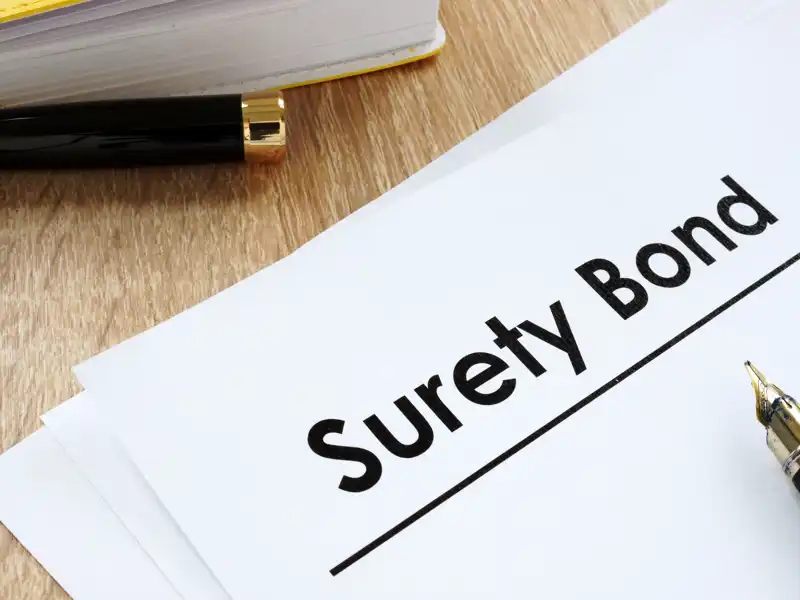Public Adjuster Bond

A public adjuster bond guarantees that a licensed public adjuster will operate in compliance with all applicable state laws and regulations and conduct business ethically and professionally while representing policyholders during the insurance claims process.
Key Highlights
- A public adjuster bond is a legal requirement in many states that ensures adjusters are authorized to represent policyholders during the insurance claims process.
- It exists to protect consumers by holding adjusters accountable for complying with all applicable state laws and conducting business with integrity.
- If an adjuster engages in unethical or unlawful behavior, the bond provides a financial safeguard by allowing affected parties to file a claim for damages.
How do I purchase a public adjuster bond?
NFP, the nation's largest and most reliable surety company, is authorized to issue public adjuster bonds in each of the 50 states. We can provide the best rates for your bond, as well as the fastest issuance, to get your business off and running.
Our short online application makes it easy. Click below to start the application process today.
Public Adjuster Bond FAQs
Anyone applying for a public adjuster license or acting on behalf of policyholders to negotiate insurance claims is typically required to obtain a public adjuster bond as part of the state licensing process.
The cost varies based on your credit and the bond amount required by your state. To get an accurate quote, apply now.
A public adjuster bond provides a financial guarantee that a licensed adjuster will perform their duties in accordance with state laws and professional standards. When representing policyholders during the insurance claims process, adjusters are expected to act with honesty, transparency and integrity. If an adjuster engages in misconduct such as misrepresentation, fraud or mishandling of funds, the bond offers a layer of protection by allowing affected parties to file a claim for damages. In this way, the bond helps promote trust and accountability within the claims process.
An insurance adjuster is a professional who investigates claims on behalf of an insurance company when a claim has been made on a specific insurance policy. When a claim is made for a personal injury situation, the adjuster may consult medical records and the professionals involved in the treatment of the insured. When the claim involves property damage, the adjuster will begin by inspecting the damage and then review police reports, interview any witnesses, and talk to nearby property owners as well. Once an adjuster has completed the investigation, they will have a good sense of what the insurance company's liability would be in the situation.
If you are an insured individual and an adjuster is investigating your claim, either for personal injury or property damage, it is well to keep in mind that the insurance adjuster will not be an advocate for you, and certainly does not have your best interests in mind. That's because they are employed directly by an insurance company or have been hired by an insurance company as an independent adjuster, for the purpose of conducting a thorough investigation into a specific claim.
There are three main types of professional insurance adjusters: independents, staff adjusters who are one of several employed by insurance companies, and public adjusters who are most often employed by policyholders. The only way you, as an insured person, can be sure that your best interests are being represented in a claim investigation is to retain the services of a public or independent adjuster yourself, and that person will then become your advocate.
The first order of business for an adjuster is to determine whether any damage that was caused in a specific event is actually covered under the terms of the policy. If that proves to be the case, the insurance company would then be responsible for making good on the costs incurred by that damage, as well as any related hardships which have been incurred as a result of the damage. A good example of this would be when a house becomes so badly damaged that it cannot safely be inhabited. In that situation, the hotel costs would be covered under the terms of the policy.
Along with asking seemingly endless questions, an adjuster will also take photos that will be used as supporting documentation for the investigation. Generally speaking, all the following activities are included in the tasks that a professional claims adjuster would routinely undertake:
- Research and assess damage
- Determine who is liable for the damage
- Inform the insurance company of all details
- Investigate all points of the claim on the policy, to include property damage, content damage, building damage, and related expenses
- Formulate a comprehensive report on all damages, so that specific dollar amounts can be assigned to financial losses
- Coordinate with contractors or specialists who will be needed to effect repairs or reconstruction.
Why Get Bonded Through NFP?
Fast and Easy
All Types. All States.
Surety Bond Experts
Strong Relationships
Pricing Flexibility
Explore All Surety Bonds
Browse all of our surety bonds below or connect with the expertise and guidance of one of our surety bond specialists.
Featured Bonds
Additional Commercial Surety Bonds
Featured Bonds
Additional Construction Surety Bonds
Featured Bonds
Additional License and Permit Surety Bonds
Explore All Surety Bonds
Browse all of our surety bonds below or connect with the expertise and guidance of one of our surety bond specialists.







